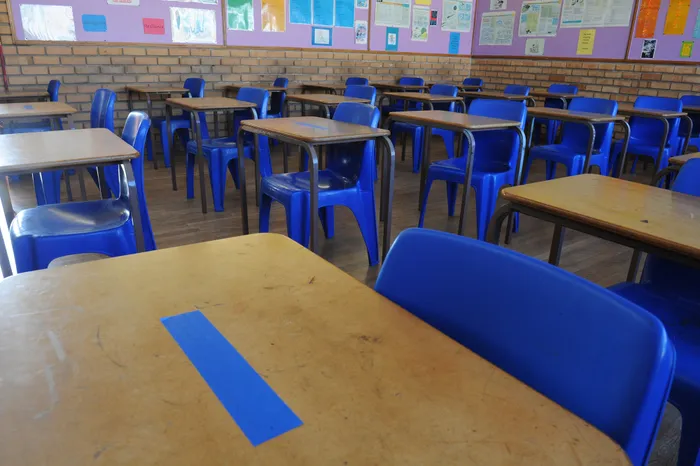275 sexual misconduct cases against teachers, only 50 dismissed since 2019

The Education Department said out of the 275 reported sexual misconduct cases, 166 have been finalised and 92 were still pending. FILE PHOTO: African News Agency(ANA)
A total of 275 cases of sexual misconduct have been reported in the provincial education departments from April 2019 to date with only 50 teachers being dismissed.
Briefing the basic education portfolio committee on Tuesday, deputy director-general Granville Whittle said out of the 275 cases, 166 have been finalised and 92 were still pending.
Whittle also said 139 cases were referred to the Education Labour Relations Council (ELRC) from 2019-2020.
His report showed that only KwaZulu-Natal reported three cases of deceased teachers who were facing disciplinary actions.
“Out of the total number of reported cases, 50 dismissals have been recorded,” the report said.
Whittle also said information received from the ELRC showed that 49 cases have been received for 2020-2021 financial year.
KwaZulu-Natal led the pack with the high number of referrals with 21 cases, followed by Gauteng with 10.
He added that the South African Council of Educators (SACE) has received a total of 132 cases of sexual misconduct since April 2021.
“The top three provinces with highest rate of sexual misconduct cases reported against teachers is Free State with a total of 27 cases.
“The second is Gauteng with 10 cases and in third place is KwaZulu-Natal with nine cases,” the report said.
Whittle told the MPs that there was a challenge with the uniform implementation of frameworks on the disciplinary procedures by the provincial departments.
“Employers are obliged in terms of item six of the Disciplinary Code and Procedures for Educators to suspend an educator on full pay for a maximum period of three months or transfer the educator to another post where they will not have access to children or endanger the well-being or safety of any person at the workplace.
“However, in some cases educators are put on suspension for a longer period because of the complex nature of the case and that has serious financial implications,” he said, adding that there was a need for urgency to disciplinary cases.
Whittle also said vetting of staff was still also a challenge.
“The responsibility to vet educators lies with both the employer and SACE.”
He said the SACE Act provided that no person may be employed as an educator by any employer unless the person was registered with the Council.
“This implies that provincial education departments neglect their duty to vet educators relying on the SACE certificates produced by potential educators, considering the fact that for SACE to register a person as an educator, it ensures that the person is screened and fit to teach before he/she could be registered to practice.”
Whittle also said the Department of Basic Education has taken several steps to ensure that acts of sexual misconduct in schools were curbed and also to ensure that those who were responsible were dealt with accordingly.
This entailed procedures for the employers of educators and protocol for reporting and management of sexual abuse and harassment in schools.
Teachers found guilty of sexual misconduct are blocked on personal and salary system (Persal) from re-employment.
“This is for temporarily/contract or permanent employment and includes the entire public service, not just education. All serious misconduct cases are reported to the Department of Basic Education with the outcomes and sanctions through quarterly reports,” read the report.
Political Bureau